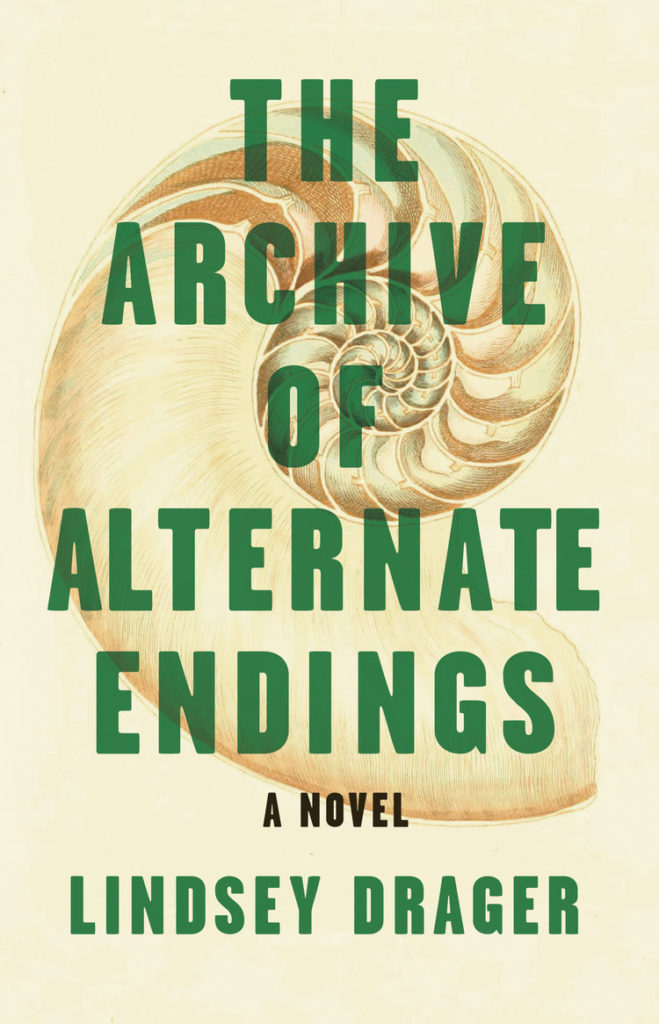
“What will survive of us is love,” Philip Larkin wrote in his poem “An Arundel Tomb.” It’s a phrase that comes to mind when thinking of mortality, a humanistic sentiment that’s both unnerving and reassuring. Lindsey Drager’s new novel, The Archive of Alternate Endings, also poses the question of what might be left behind after a life ends: legacies of the cultural, emotional, and familial sort are all part of the mix here. But Drager is also after something larger here, examining what might be left behind after the entirety of humanity has gone extinct.
Her answer results in one of the most stunning fictional images in recent memory: a pair of interstellar probes in search of a habitable planet, sharing the story of Hansel and Gretel as they go. The Archive of Alternate Endings is not a long novel, but it doesn’t want for ambition: Drager’s structure is incorporated about the years in which Haley’s Comet passes Earth, and also explores numerous variations on the fairy tale in question. The result is a quietly captivating novel, an ambitious epic that’s as intimate as a chamber piece.
Both structurally and thematically, The Archive of Alternate Endings falls somewhere between Michael Cunningham’s The Hours and David Mitchell’s Cloud Atlas — though it also resembles nothing quite so much as Darren Aronofsky’s film The Fountain in the way that the echoes of its characters and themes percolate around the book. Here are the Brothers Grimm, grappling with what to do over a version of the Hansel and Gretel story in which Hansel is exiled for his sexuality; here is a woman living in isolation, referred to ironically as a witch, who has dedicated her life to caring for men dying of AIDS; here, centuries earlier, are a brother and sister lost in the woods. Even the twin probes telling one another stories as they venture into the unknown plays out like another variation on the same theme.
It doesn’t hurt that Drager has a deftness at creating a fully-formed character in a handful of sentences, even if their appearance in the larger text is fleeting. Here, she encapsulates the stuff of a life that could well be a novel of its own:
A girl dies too young and her brother pounds on her headstone with his fists until his hands are bloody. He finishes school, marries, divorces, learns he cannot bear children, works a lifetime at a job at which he does not thrive. He turns thirty, then fifty, then seventy. All this time he is haunted by the sister he lost.
The Archive of Alternate Endings can be a bleak read: its characters deal with terminal illnesses, ostracization, the loss of family members, and the end of humanity as a whole. But elements of it are also strangely hopeful: those two small probes cascading through the cosmos, bearing with them some element of the planet they left behind. It’s in their journey that Drager leaves some room for optimism, even of the most hard-fought sort. This isn’t always an easy book to read, but it hits with the primal force of a story told for generations.
***
The Archive of Alternate Endings
by Lindsey Drager
Dzanc Books; 154 p.
Follow Vol. 1 Brooklyn on Twitter, Facebook, and sign up for our mailing list.
